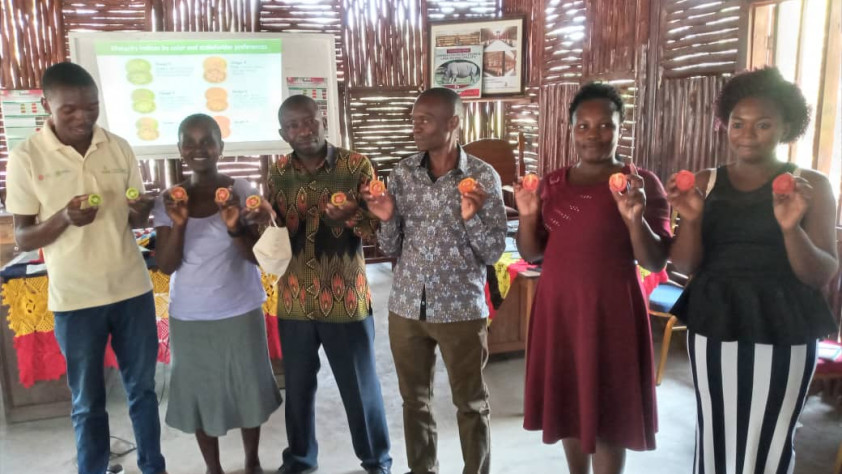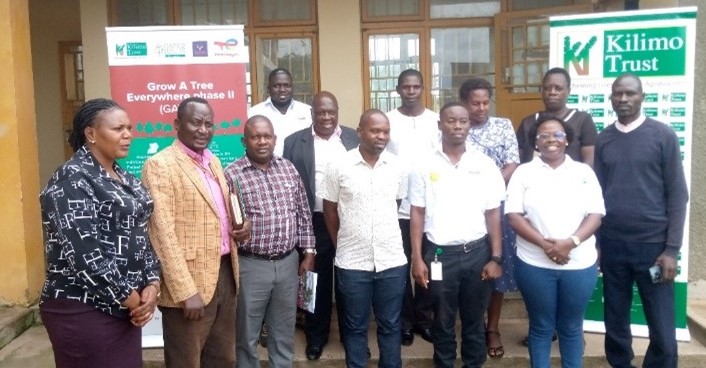Year: January 2019 – December 2022
Country/Area: Uganda
Client: Government of Uganda and European Union
Description:
The project seeks to enhance food and nutrition security, increase household incomes and improve maternal and child nutrition and health in Northern Uganda by promoting diversified food (and animal) production of resilient varieties: commercialising agriculture; improving post-harvest handling, food preparation and consumption practices: and encouraging family planning for improved and sustainable livelihoods.
Specific objectives:
- Increase household food and nutrition security;
- Increase household incomes;
- Improve maternal and child nutrition and
- public and reproductive health.
Areas of Implementation:
- Lango region: Amolatar, Apac, Dokolo, Kwania and Otuke districts
- Teso region: Amuria and Kapelebyong districts
The direct beneficiaries are 51,250 households and indirectly are 268,650.
The project is being implemented by 6 partners – IITA, Kilimo Trust, Rikolto International, Bioversity International, Ecurei and VEDCO. Kilimo Trust is the lead implementor of the Markets component with Rikolto International. The major commodities prioritized by all districts for commercialisation and trade include: rice, cassava, soy bean, ground nuts and poultry. The core activities for the markets component include:
- Foster linkages between smallholder farmers, agro- processors and market operators.
- Assess and identify market opportunities and product niches along the stages of the value chain and facilitate market exchange and contractual agreements.
Expected Results
- 51,250 small holder farming households reached
- 25,625 small holder farmers with access to viable markets
- 30% increase in incomes of farming households
- 60% of the farmers adopt improved postharvest technologies
- 30,750 smallholder farmers trained in business development skills
- 28 business linkages established between buyers and farmers
- Eleven (11) trade agreements established and signed
- 5,120MT of target crops traded nationally and across borders
- Seven (7) storage facilities upgraded, and 14 stores equipped
- 3 market assessment reports and simplified information packs developed and disseminated.
- At least 3 improved postharvest technologies promoted, and Seventy-One (71) postharvest/value addition technologies disseminated
- 30,000 smallholder farmers supported to add value to their produce
- 63 Business to Business meetings organized and conducted
- 30 New Jobs created within the target districts
Achievements So far:
- 51,250 small holder farming households reached
- 16,010 small holder farmers with access to viable markets
- 30% of the farmers have adopted improved postharvest technologies
- 35,131 smallholder farmers trained in business development skills
- 40 business linkages established between buyers and farmers
- 40 trade agreements established and signed with medium and large processors for soybean, cassava and rice
- 2,632.573 MT worth USD 677,222 of target crops traded by engaged farmers to structured markets
- Seven (7) storage facilities upgraded, and 12 stores equipped
- 3 market assessment reports developed
- 3 improved postharvest technologies (motorized rice thresher, soybean thresher and automatic grain cleaner) promoted, and 74 postharvest/value addition technologies disseminated
- 15,868 smallholder farmers supported to add value to their produce
- 70 Business to Business meetings organized and conducted
- 69 New Jobs created within the target districts for youths in service provision


